How are energy prices set? And other questions
- Published

The typical household energy bill will rise to £3,549 on 1 October because of a new price cap set by the government's energy regulator, Ofgem.
This will be an 80% rise in the price, and it's expected to push millions more people into energy poverty - where they will not be able to afford to heat their homes adequately.
The BBC's personal finance correspondent Kevin Peachey and broadcaster and financial journalist Iona Bain answer your questions about this latest increase.
How are energy prices set? - Peter H. Williams
Kevin Peachey writes:
For the vast majority of us - 24 million households in England, Wales and Scotland - this is based on the price cap set by regulator, Ofgem.
Remember, this is a cap on the price of each unit of gas and electricity, not the total bill.
Ofgem decides the cap based on various elements including the wholesale price of gas, which is paid by suppliers.
That's been rising owing to higher global demand after the pandemic and, primarily, the impact of the war in Ukraine.
In normal times, suppliers would compete for customers by offering cheaper fixed deals, but these are not normal times.
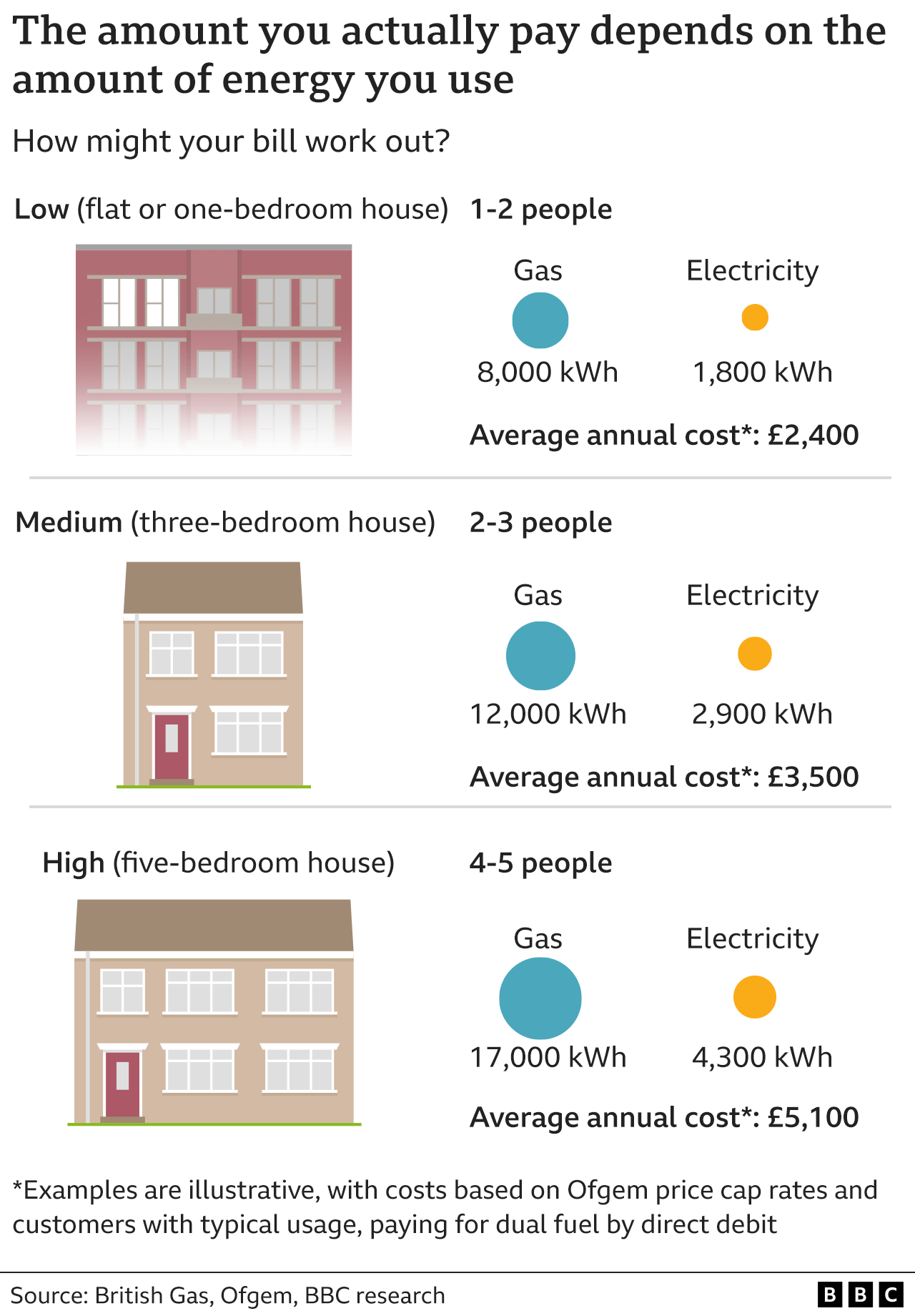
I've read that the increase is £59 a year for people on pre-payment meters compared with an 80% rise for a 'typical bill'. So is the increase in the pre-payment cap much lower? - Matthew Hunter
Iona Bain writes:
I'm sorry to say, Matthew, that the £59 actually refers to the difference between the regular price cap and the pre-payment price cap. That means the pre-payment price cap is £3,608 as opposed to £3,549.
Customers on pre-payment meters have long had to pay over the odds for their energy usage. This winter will be particularly hard on them. If you can't afford to top up your meter, you might be able to get a fuel voucher either from your council or local Citizens Advice.
Speak to your supplier as soon as possible to ensure they understand your situation and if need be, offer you emergency credit.
If you're already in energy debt, you may be entitled to a grant for your energy supplier to help pay off your debts and vulnerable folk can be asked to be put on the Priority Service Register to ensure they get extra consideration over the coming months.
Energy suppliers are coming under lots of pressure from debt charities to ensure that their payment plans for customers on pre-payment meters are realistic. Let's watch this space.
Will customers who signed up to a two-year fixed price tariff with their energy supplier see their bills increase after Ofgem's announcement today? - Judy Power
Iona Bain writes:
Anyone on an existing fixed rate tariff will not see their bills rise until that deal ends. But as soon as it does, expect to be shifted onto a variable rate tariff, which is pegged to the price cap.
In other words, if you're not paying higher energy bills now, soon enough you will be.
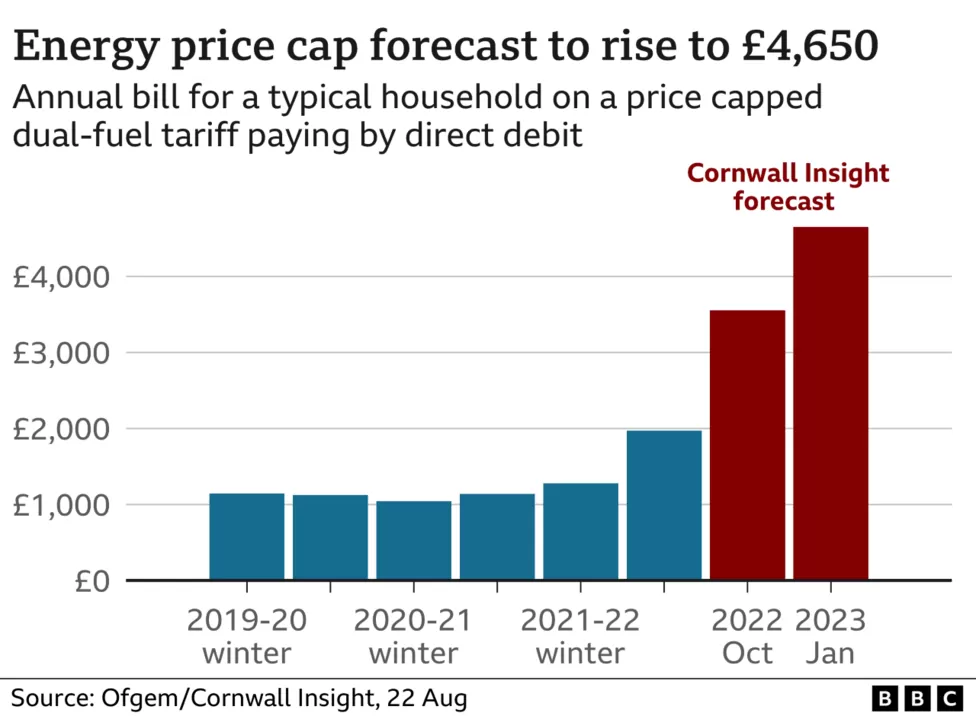
Once your deal ends, you only have two options, and neither of them are great. You can either stick to the price cap and hope that it falls sooner rather than later or pay a massive premium for a new fixed rate tariff from your existing supplier.
The one advantage of the second option is that you would have certainty about how much your bills would cost. But even if you can afford the enormous mark up, you would be gambling on the possibility that energy prices won't come down over the term of that tariff.
The best thing to do is to keep an eye on energy price cap predictions and whether they lead to more reasonable fixed tariffs coming through. If so, you may have to snap them up quickly.
Why in the UK we are facing such increases in gas prices and possible gas shortages? I see our gas is from home-produced sources (47%), or imported by pipeline (45%) and LNG (8%). I read we get little from Russia. - Mike and Brenda Kirk from Kent
Kevin Peachey writes:
The Kirks are correct in that we receive very little, if any, gas from Russia.
But wholesale prices are not set on a domestic level, dependent on where we get our gas.
Instead, suppliers are buying from a more international market, which is facing large price increases.
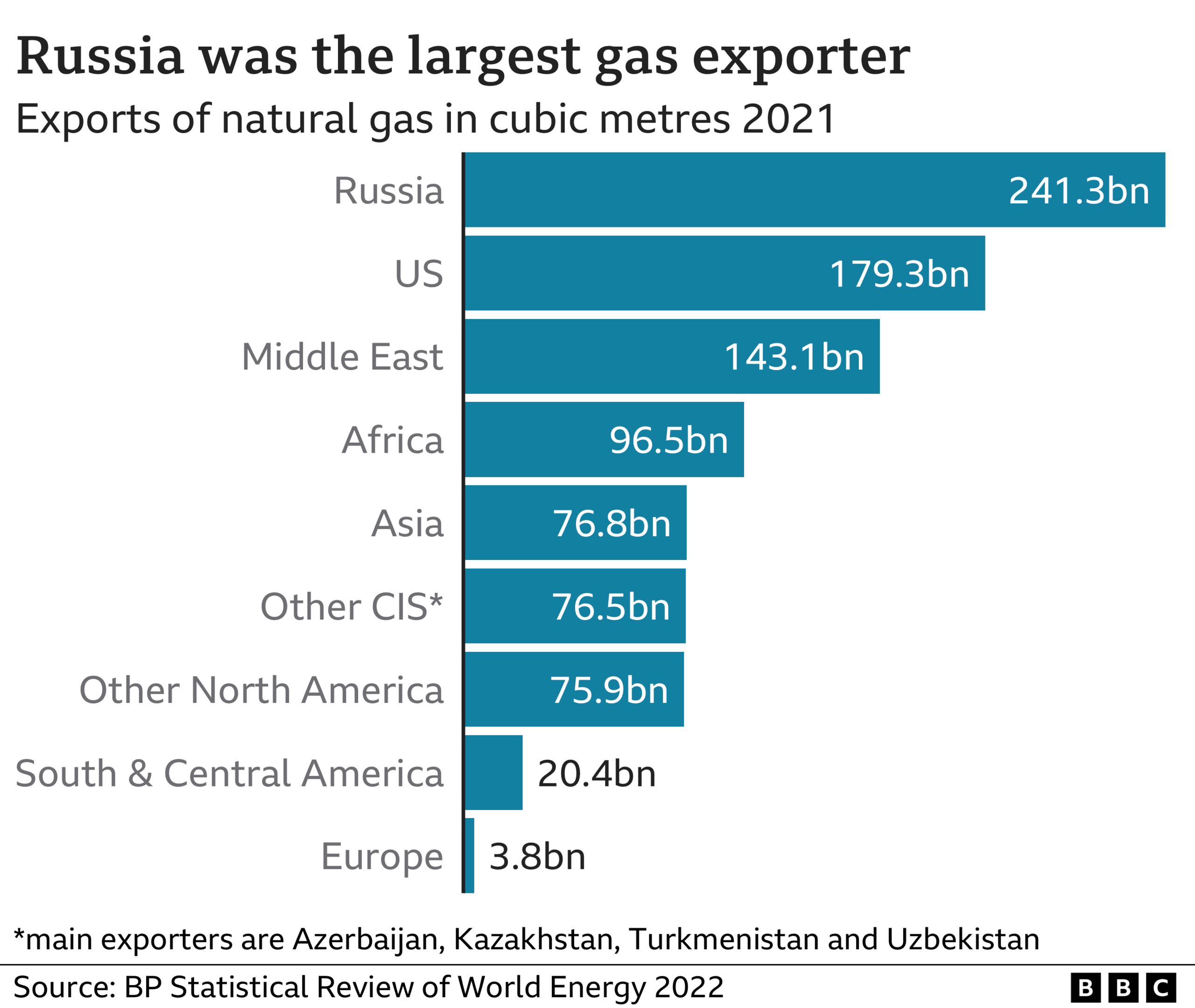
The bad news is that the wholesale price continues to rise, and is forecast to keep rising. Hence, we are being told to expect domestic bills of more than £5,000 a year in January, then £6,000 in April.
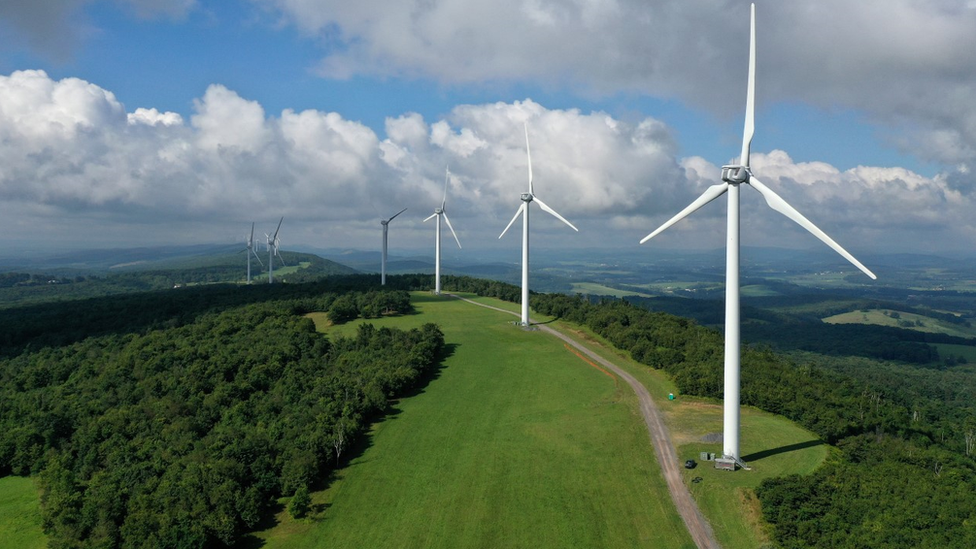
Prices for renewable energy tend to rise and fall with the prices of fossil fuels
My energy supplier continually states that they get energy from wholly renewable sources. Why is renewable energy increasing in cost the same as fossil sources? - Steve Walker from Wolverhampton.
Kevin Peachey writes:
This is a knotty issue, and one which is a matter of considerable debate.
The reality is that the amount green energy firms pay the companies that generate their energy is determined by the wider wholesale energy market.
Some renewable energy goes into the grid where it is mixed up with power generated elsewhere, forging more of a link.
Lots of companies and campaigners want the links to be decoupled where possible.
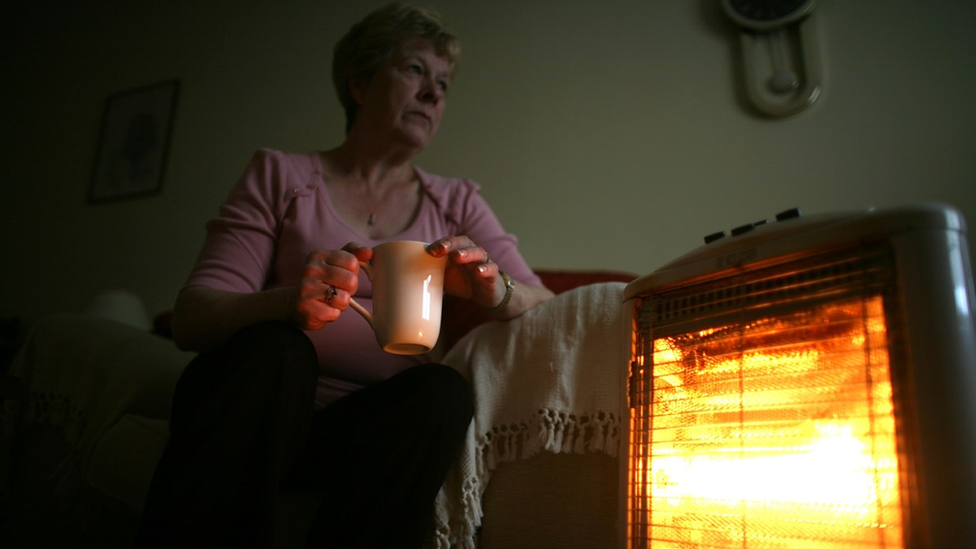
Some people may be eligible for the Warm Home Discount this winter
Which households are eligible for Warm Home Discount (WHD) in 2022/23? - Glen Watson from South Yorkshire
Kevin Peachey writes:
The Warm Home Discount is worth £150 this winter, and will be paid automatically as a discount to an electricity bill between October and March.
It covers England, Scotland and Wales but, if you live in Scotland, you may need to apply.
It is paid to people on low incomes, including some low-income pensioners. You can find more on the eligibility criteria by clicking here, external.
However, it is not to be confused with the Winter Fuel Payment, which is worth more, is paid to all pensioners, and this winter includes a one-off top-up from the government.